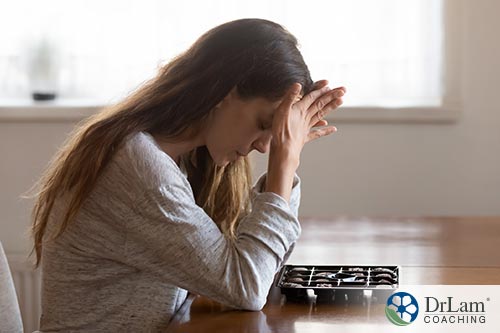 Recurrent yeast infections can be an ongoing problem for many women. Not only do they affect the health of your vagina, but they impact your overall health as well. These infections can be uncomfortable, embarrassing, and frustrating to deal with. That’s why you need all the information on them, so you can identify why the infection keeps coming back. This the first step to becoming free of this annoying problem.
Recurrent yeast infections can be an ongoing problem for many women. Not only do they affect the health of your vagina, but they impact your overall health as well. These infections can be uncomfortable, embarrassing, and frustrating to deal with. That’s why you need all the information on them, so you can identify why the infection keeps coming back. This the first step to becoming free of this annoying problem.
If you have more than 4 yeast infections a year, then you suffer from recurrent yeast infections. This condition is also known as candidiasis and it’s fairly common in women. It also occurs in men, but less frequently. They are contagious through sexual contact and other methods of transmission, so talk to your doctor if you’re concerned about that.
Yeast infections are often caused by the fungus Candida. The bacteria known as lactobacillus prevents the overgrowth of this fungus. Certain factors can upset this natural balance, leading to an increase in yeast cells and a yeast infection. This can cause symptoms in and around the vagina such as:
For most women, a yeast infection will go away within a couple of days after they try the right solution. But this isn’t always the end of it. In some women, the symptoms of the infection can take longer to go away and then come back at random. Unfortunately, once you’ve had a yeast infection, you’re more likely to get one in the future. And if this occurs on an ongoing basis, it’s known as recurrent yeast infections and it’s a sign that something is seriously out of balance.
Before you understand what causes recurrent yeast infections, you need to know what causes the first infection. Several factors increase your chances of infection including:
Some of these factors you can change and some you can’t. However, these causes don’t always explain why yeast infections keep coming back.
If you have recurrent yeast infections that keep coming back, then there are several potential causes including:
Not everyone’s body is the same and your body may not react to yeast infection solutions the same way as other people. So, if your infection comes back, then maybe it wasn’t gone in the first place.
Most yeast infections are caused by the Candida fungus. If your infections keep coming back, then it might be caused by a different strain that requires different medications. There are also several types of fungi that cause yeast infections and are resistant to medications.
Yeast infections thrive in hot, humid conditions. So, if you live in a hot area and your clothes are constantly wet with sweat then it may be contributing to your infections.
Yeast infections can pass back and forth between people during sexual contact or between mother and child through breastfeeding. So, if you keep getting infected, then check the people around you.
When you have a low immune system, you're more prone to having yeast infections come back as your body wasn't able to fully fight off the first infection.
Several conditions can look like a yeast infection but aren’t. These include STIs and skin allergies.
If you have recurrent yeast infections, then here are some strategies that may help alleviate the problem safely and completely:

Chronic conditions like Adrenal Fatigue Syndrome (AFS) are strongly linked with yeast infections. Chronic stress and AFS causes imbalances in the NeuroEndoMetablic (NEM) stress response. This leads to high demand for cortisol, which can result in the overactivation of the NEM stress response and adrenal fatigue. And the result can be multiple circuit imbalances, including in the Inflammation Circuit, which is directly linked to yeast infections.
The Inflammation Circuit includes the gut, the immune system, and the microbiome or bacterial balance within your body’s environments. This circuit is essential for fighting off infections, which it does by increasing inflammation levels. But when you have AFS and inflammation becomes chronic, it will unbalance each of the three parts of this circuit. The immune system can become overactive, causing too much inflammation. This will damage the health of the microbiome, throwing off the balance between good and bad bacteria. The gut will also decline in health, further impacting your body’s bacterial balance and general health. And as the health of each of these components declines, it will negatively impact the health and functioning of the others.
This can lead to a whole range of problems including chronic infections. That’s why people with recurrent yeast infections must look for the underlying issues that may be causing their problems. If you have AFS, then addressing the adrenal fatigue and circuit imbalances are essential for vaginal and overall health.
You shouldn’t have to suffer in silence when you experience recurrent yeast infections. Instead, you need to study your health and the patterns of your infections. That will help you identify the causes and then you can start eliminating them and reclaiming your health again. Here’s where to start:
If you experience recurrent yeast infections and want help, then contact the team at +1-626-571-1234 or click here to use the Ask The Doctor System.
Recurrent yeast infections can happen to anyone and at any time. They’re frustrating, uncomfortable, and can be quite embarrassing. If you experience this issue, there are several common causes you should avoid like certain medications, poor hygiene practices, or too much humidity.
